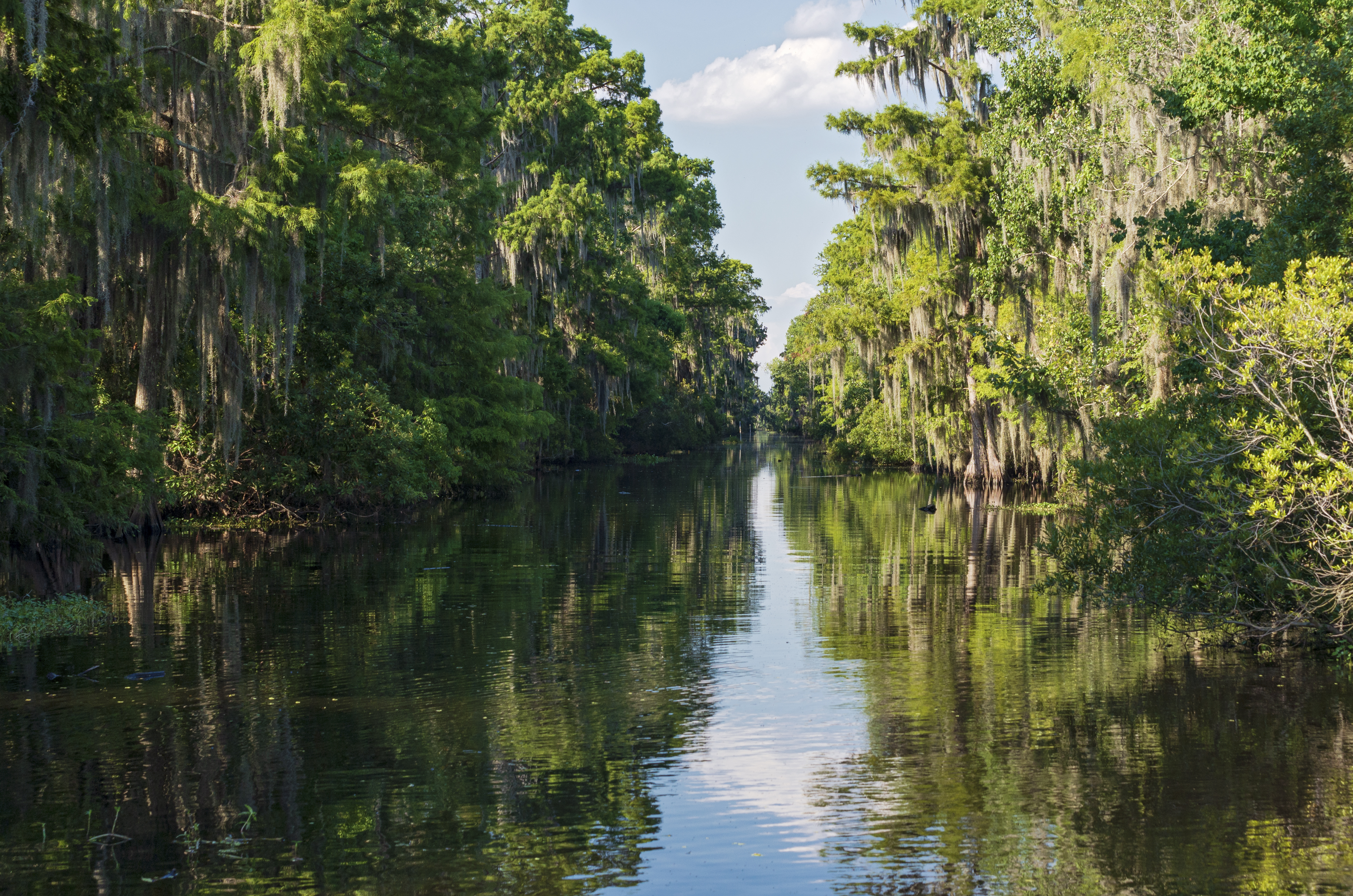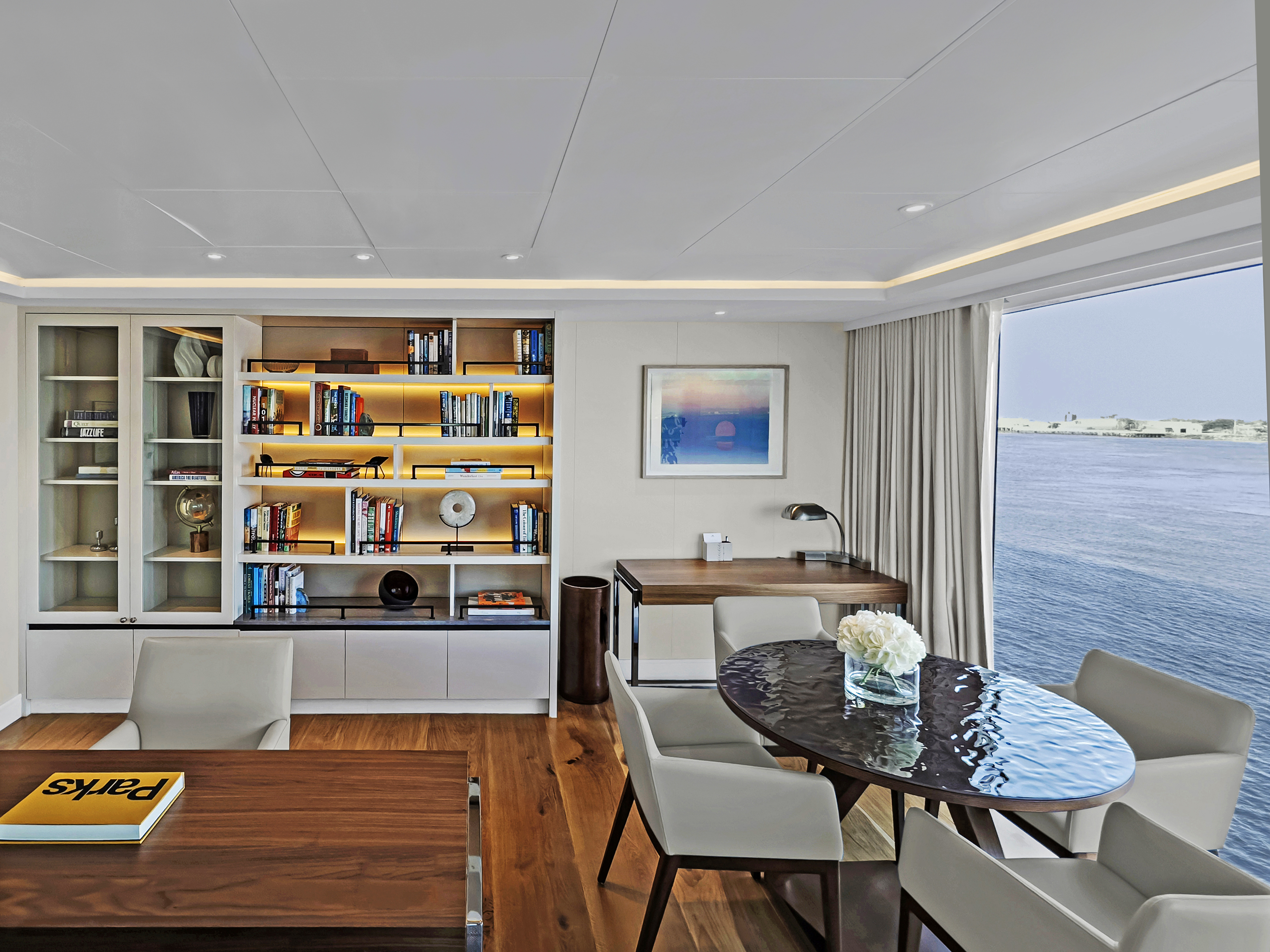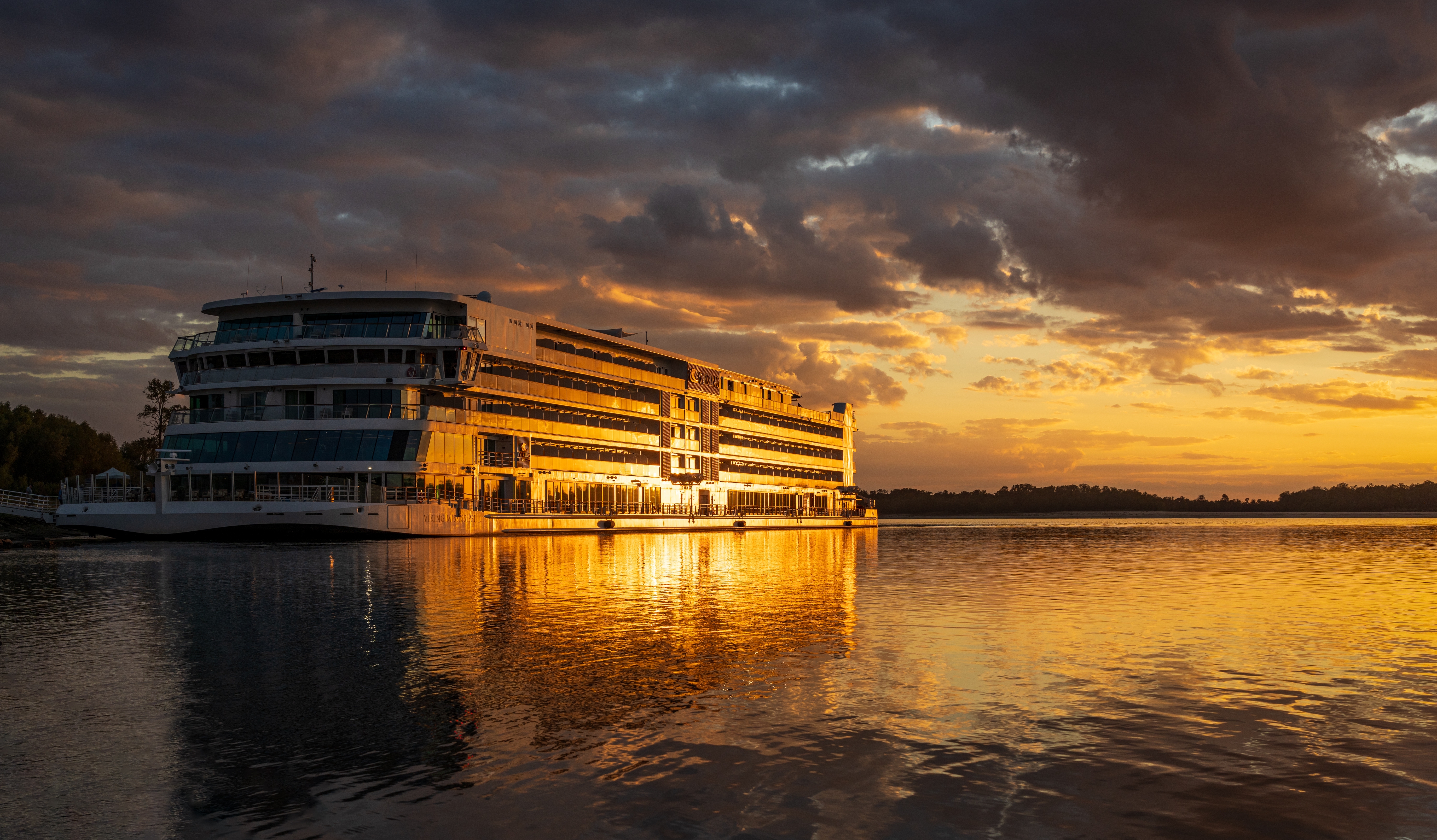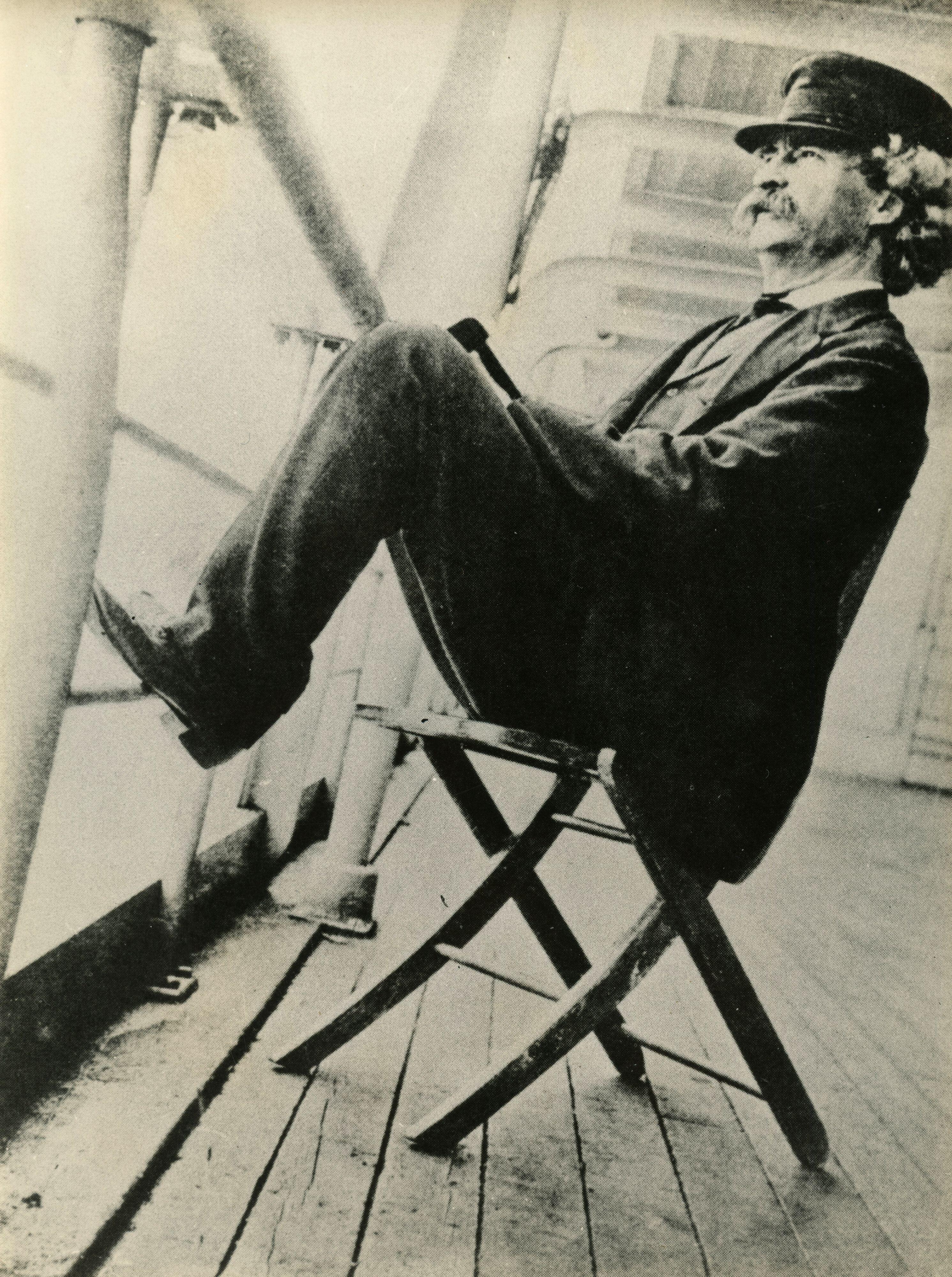How to cruise in the wake of Mark Twain on the great Mississippi River of the American South
'You cannot understand Twain without understanding the great river that winds its way as twistingly through his work as it winds through the middle of America.'

Exquisite houses, the beauty of Nature, and how to get the most from your life, straight to your inbox.
You are now subscribed
Your newsletter sign-up was successful
Travel is fatal to prejudice, bigotry, and narrow-mindedness, and many of our people need it sorely on these accounts…
Underlining Mark Twain’s words in the departure lounge at London Heathrow, I’m reminded of how his prose still swings today. You look at the bracketed dates after his name and you’re surprised to see he was born not as recently as 1935, but in 1835, so that this year sees the 190th anniversary of his birth. It’s the reason I’m boarding a flight to New Orleans and the Mississippi. For you cannot understand Twain without understanding the great river that winds its way as twistingly through his work as it winds through the middle of America. To travel the length of the Mississippi back in the 19th century — all 2,300 miles of it — was no small undertaking and took Twain many months. I’ll have to do what I can in a week.
When you are invited to drink–and this does occur now and then in New Orleans...
Twain wrote this, with delicious understatement, in 1883. Today, 142 years later, not much has changed in The Big Easy. A night wandering beneath its lights when you are jangled from the flight and spangled from the welcoming cocktails is something we should all experience. A little woozy by the riverside, I can see the docks and the massive ships standing ready, as they have for centuries. Later still, back at the hotel I clamp a hand over one eye and turn to Twain’s memoir Life on the Mississippi.
It is the crookedest river in the world, since in one part of its journey it uses up one thousand three hundred miles to cover the same ground that the crow would fly over in six hundred and seventy-five


Braced for the circuitous, I flop into bed around 5am, my time.
I’m not sure what I’m expecting ship-wise, but Viking Mississippi (above) appears to me so huge that I have doubts about how we’ll get it around Twain’s narrow, twisting Mississippi. It’s also so sumptuous — three lounges in tasteful creams and teals, two restaurants, two bars — that the thought of leaving it to go and see anything is already proving vexing. We set sail at dusk, heading north-west.
As you cruise gently upriver, here and there the huge antebellum mansions appear out of the greenery on either side of the banks. They are all white, with vast porches wrapping around them; porches fronted by columns as thick as any you’d see on one of the Nash mansions that ring Regent’s Park. (They were constructed at about the same time, too.)
We dock in Darrow, Louisiana, and visit one of them, moving from room to room, taking in tapestries and glassware, carpets and tennis court-sized living rooms and portraits lining the walls: the unsmiling tyrants in heavy oils.

Oak Alley Plantation is most famous for the fourteen pairs of centuries-old oak trees that line the walk from the house to the Mississippi
For the term ‘antebellum’ loses its graceful, architectural connotations and shades into something more ominous when considered in its literal meaning, ‘before the war’. ‘War’ meaning the Civil War and ‘before’ referring to the elephant in the room, the very thing that built all these beautiful homes: slavery. As the older Twain knew, it is impossible to escape the shadow of slavery for long on the Mississippi.
Exquisite houses, the beauty of Nature, and how to get the most from your life, straight to your inbox.
In his autobiography, he confessed that as a young boy he had ‘no aversion to slavery’ and wasn’t ‘aware that there was anything wrong about it’. Shame came to Twain after the Civil War. Whereas Tom Sawyer was a child’s-eye view of what the South saw as the unfallen Eden of the time before abolition, Huckleberry Finn became about something else entirely. Written after the breakdown of reconstruction — when former slaves were being exploited, disenfranchised and lynched — it was about the same child growing up in a world where people thought themselves civilised, despite running a barbarous system. A century and a half later, it still makes for uneasy reading.
The next day, we dock in Natchez. I drink coffee on the balcony of my cabin or ‘stateroom’ as the Viking literature refers to it (to be fair, it is so well appointed that ‘stateroom’ does indeed feel more appropriate than ‘cabin’) and gaze at the little row of buildings that make up the harbourside area of Natchez Under-the-Hill. Twain described the very sight I am looking at more than a century ago, in 1883.
It had a desperate reputation, morally, in the old keel-boating and early steamboating times—plenty of drinking, carousing, fisticuffing, and killing there, among the riff-raff of the river...
Disappointingly, there’s less sign of any of this stuff today — only elderly tourists milling in front of gift shops. There is even a Mark Twain Guest House above a cute tavern. It’s a cute tavern now, but we’re told it’s been there since the 18th century, so hopefully it once saw much drinking, carousing and fisticuffing. However, the small print of the guest house is forced to tell us that, despite its name, its beds have never known the imprint of the author’s buttocks: not once did he spend the night here.
Later, in the leafier environs of Natchez On-Top-of-the-Hill, we are given a tour of the town and then shown around another former plantation owner’s home, where we are served a traditional lunch of cornbread and fried chicken with okra and black-eyed peas, all washed down with a variety of local muscadine wines, so sweet as to be indistinguishable from sugar syrup. The tour and the lunch are supervised by white ladies in their sixties and seventies, all with beautiful, cut-glass Southern accents and impeccably polite manners.

Late at night with a drink in your hand, up by the bow — the breeze in your face and the lights of yet another great processing plant or refinery blinking in the shore darkness — you will see a bend in the river coming up and be reminded that there is always a bend coming up on the crookedest river in the world. Twain again:
The marvellous precision required in laying the great steamer in her marks in that murky waste of water… at one place she must pass almost within arm's reach of a sunken and invisible wreck that would snatch the hull timbers from under her and destroy a quarter of a million dollars’ worth of steam-boat and cargo in five minutes, and maybe a hundred and fifty human lives into the bargain
Not for the first time as I head to bed, I spare a thought for our youthful captain, somewhere above me on the bridge, negotiating all of this through the night.
The following morning, we dock in Vicksburg, location of one of the bloodiest sieges of the Civil War. I take a stroll through the town, where, in a tiny bookstore, I come across a non-fiction title called Devils Walking. It’s an account of the activities of an ultra-extremist branch of the Ku Klux Klan, The Silver Dollar Group, which brutally murdered eight black men between 1964 and 1967.
The focus of their activities was right here, on this stretch of the Mississippi, in and around the towns of Natchez and Vicksburg. In the book, I find a quote from an elderly black lady, who explains why even now, today, she does not make a fuss about the atrocities that happened some 60 years ago. ‘These people still live here,’ she says, simply and chillingly, meaning the perpetrators, most of whom, of course, were never brought to justice. I find myself wondering about the genteel, polite ladies who served us lunch and showed us around the towns and plantation houses. They would have been little girls — perhaps teenagers — in the mid 1960s. I begin to think about who their parents were and what they might have been doing back then.
And I think of Mark Twain, writing the words ‘travel is fatal to prejudice, bigotry and narrow-mindedness and many of our people need it sorely...’
Viking’s seven-night ‘New Orleans & Southern Charms’ itinerary costs from £3,695 per person, based on current availability in January 2026. The price includes return flights from select UK airports, a Veranda stateroom, in-destination transfers, all on board meals and drinks, and excursions. Call 0800 319 6660 or visit the Viking website for more information.
John Niven is a Scottish author and screenwriter. His books include Kill Your Friends, The Amateurs, and The Second Coming.